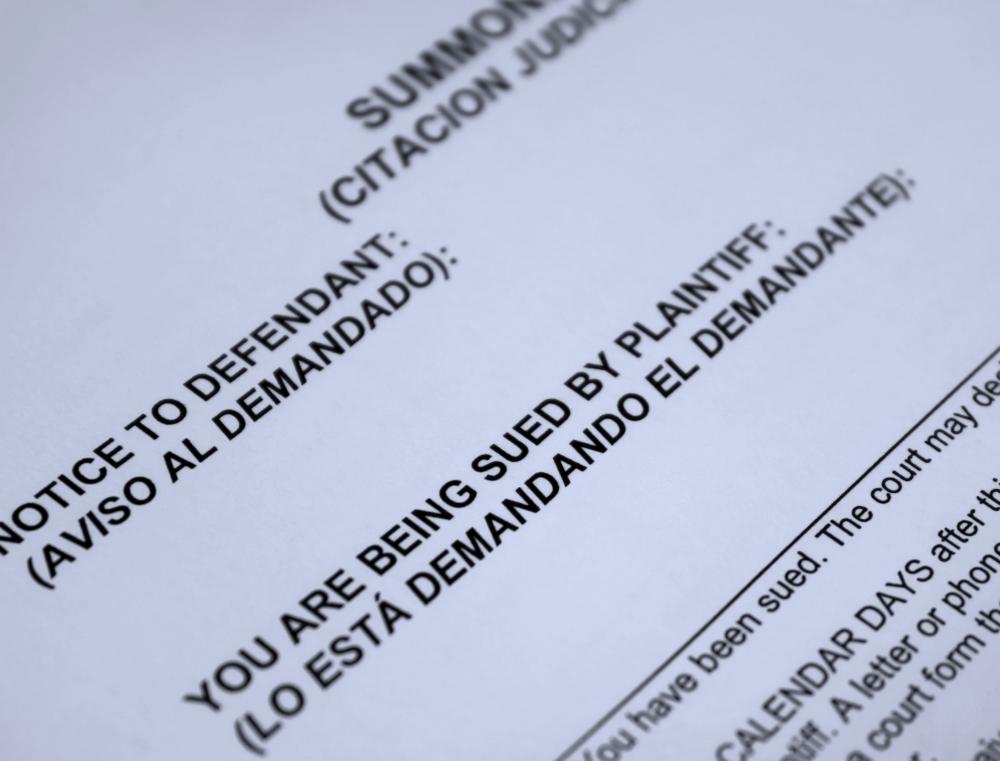At WiseGEEK, we're committed to delivering accurate, trustworthy information. Our expert-authored content is rigorously fact-checked and sourced from credible authorities. Discover how we uphold the highest standards in providing you with reliable knowledge.
What is a Shareholder Derivative Suit?
A corporate shareholder who believes a corporation-damaging wrong has been committed can file what is known as a shareholder derivative suit. The shareholder does not file on his own behalf but on behalf of the corporation. Such a suit often is filed against the corporation's board of directors or someone else in the corporation's management hierarchy, and it often alleges some form of mismanagement that the shareholder believes is harming the corporation.
A shareholder has the right to bring such a suit as of the date of the alleged wrong and after establishing standing and following the correct corporate procedure. Typically, a shareholder derivative suit is appropriate when a board of directors' refusal to enforce a corporate right may be damaging to the corporation. This type of action is pursued by shareholders on behalf of the corporation, and the corporation becomes the plaintiff in the case.

Generally, a board of directors has engaged in some type of fraud, is being overpaid or is taking corporate opportunities when a shareholders derivative suit is brought. A derivative suit is different from a direct action. In a direct action, a board of directors' act must have had a direct impact on a shareholder's personal finances. Typically, a direct action is taken when a board of directors is in breach of a fiduciary duty. By contrast, a shareholder derivative suit isn't personal; instead, it seeks to protect the corporation as an entity.

A shareholder must have standing to commence a shareholders derivative suit. This means that the representative shareholders must have been shareholders at the time of the alleged act or omission and must be majority shareholders. Corporate procedure varies from state to state but, whatever the procedure, the shareholder has to follow it. Corporate procedure generally dictates that the shareholders first demand, in writing, that the board of directors itself pursue the action. If the board of directors refuses, a shareholder derivative suit may be filed within a mandated period of time.
In most states, the cost of bringing such a suit is related to the end result. If a shareholder derivative suit results in a substantial benefit to the corporation, then the corporation must pay the shareholder's legal costs. Conversely, if a shareholder derivative suit has been brought without reasonable cause or for an improper purpose, the corporation/plaintiff may be ordered to pay the legal expenses.
Many states have a statutory provision called the "business judgment rule." The business judgment rule is derived from common law and dictates that a shareholder derivative suit requires a clear showing of abuse of discretion. It also specifies that a court will not become involved in the business decisions of a board of directors, if the board has acted in good faith. If no abuse of discretion or bad faith can be shown, the board of directors will be shielded in a closed case.
AS FEATURED ON:
AS FEATURED ON:












Discuss this Article
Post your comments